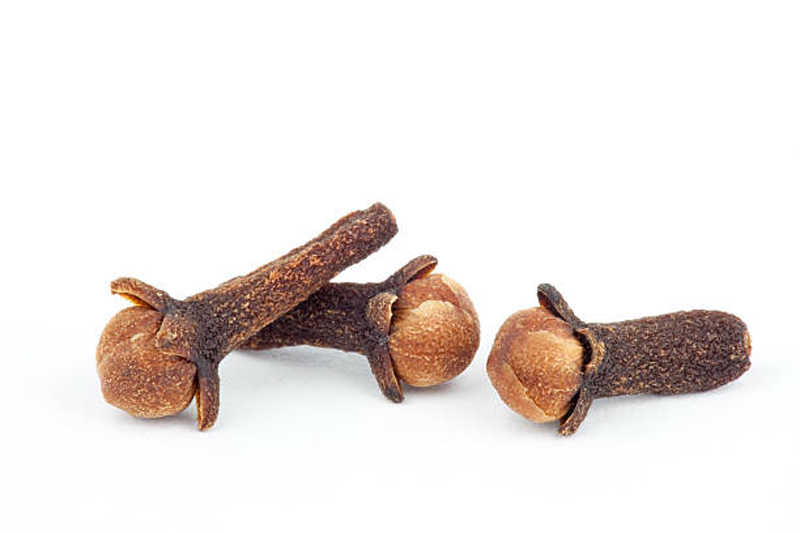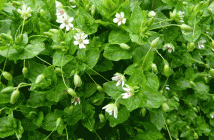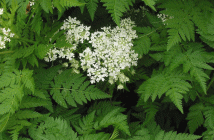One of the most popular spices throughout history, cloves ( Syzygium aromaticum) are a product of an evergreen tree native to the Moluccas islands. The clove tree thrives only in a tropical climate near the sea,
reaching a height of thirty feet. The leaves resemble bay and the flower buds are pinkish-red in color; when open, the latter reveal yellow petals and a profusion of stamens. The buds-harvested and dried in the sun until they tum brown-are the useful portion of the plant.
Cloves were listed in early Chinese herbals and widely used during classical antiquity. Long before Christ’s birth, the upper classes sucked on them to perfume their breath. Early physicians prescribed the spice as an aid to digestion, believing that it strengthened the stomach, liver, and heart. The widespread use of cloves in the English diet was ushered in by the Norman invasion of 1066; however, the spice remained expensive until the Portuguese broke the Venetian spice monopoly several hundred years later. The Dutch seized the Moluccas in the mid-seventeenth century, thereby suppressing the export of clove seed or seedings until the next century.
The island of Zanzibar is appreciated for its many fragrant clove trees. Tom Stobart, in his Herbs, Spices and Flavorings, notes, “On a hot, muggy evening when the light breezes filter through the trees, if one approaches the island from downwind, one can smell cloves even before the land comes in sight” (cited in Heinerman, 1996, p. 168).
As a result of their fragrance and sharp taste, cloves are widely used to season meat, vegetable dishes, soups, and some desserts such as cake and cookies. The flavor of red wine can be intensified by heating and adding several buds. A spicy tea that refreshes and stimulates the appetite is produced by crushing several buds and adding them to boiling water.
Cloves possess a number of other positive properties. Antiseptic with a mild anesthetic action, its oil can be rubbed on sore gums or applied ( via a cotton wad) to an aching tooth. It can also be used as a mouth rinse for bad breath. Cloves have been a staple in air fresheners at least as far back as the sixteenth century. Sucking on one or two whole cloves has been recommended for curbing cravings for alcohol.




